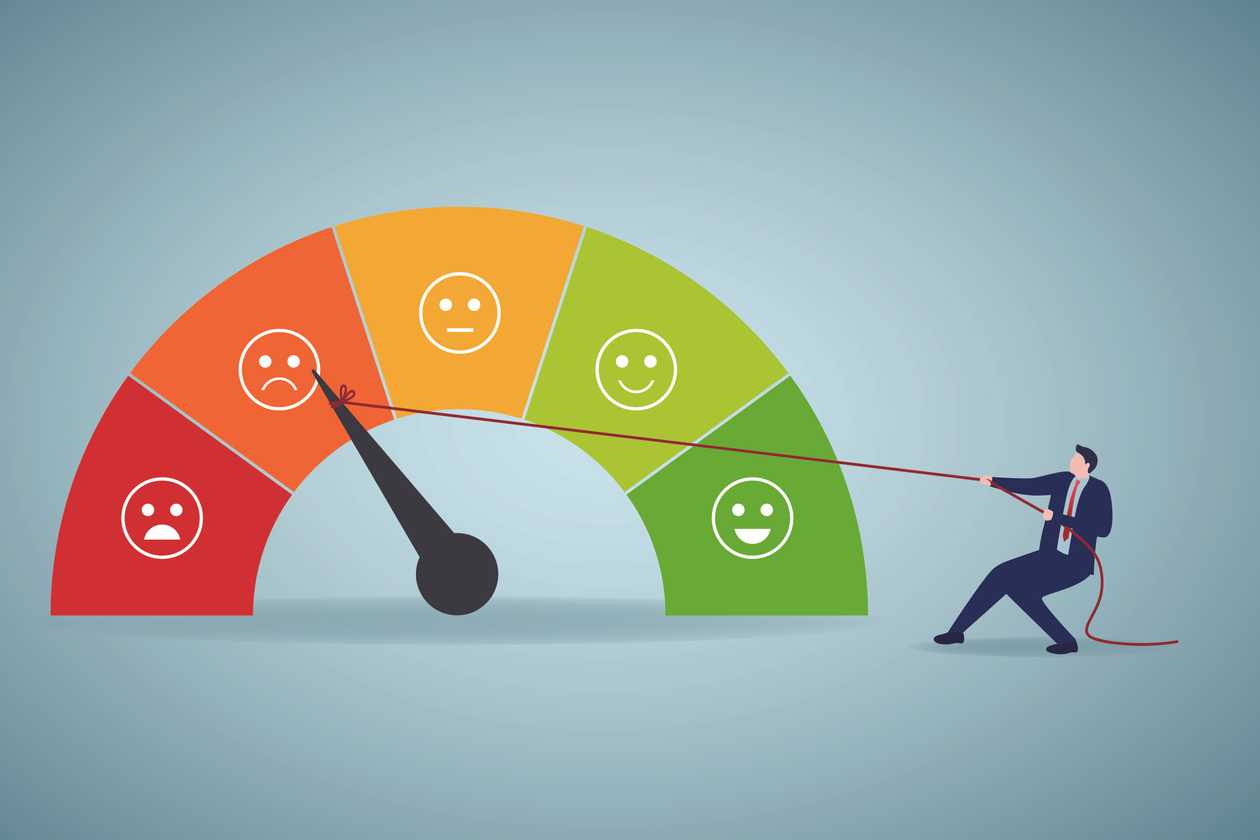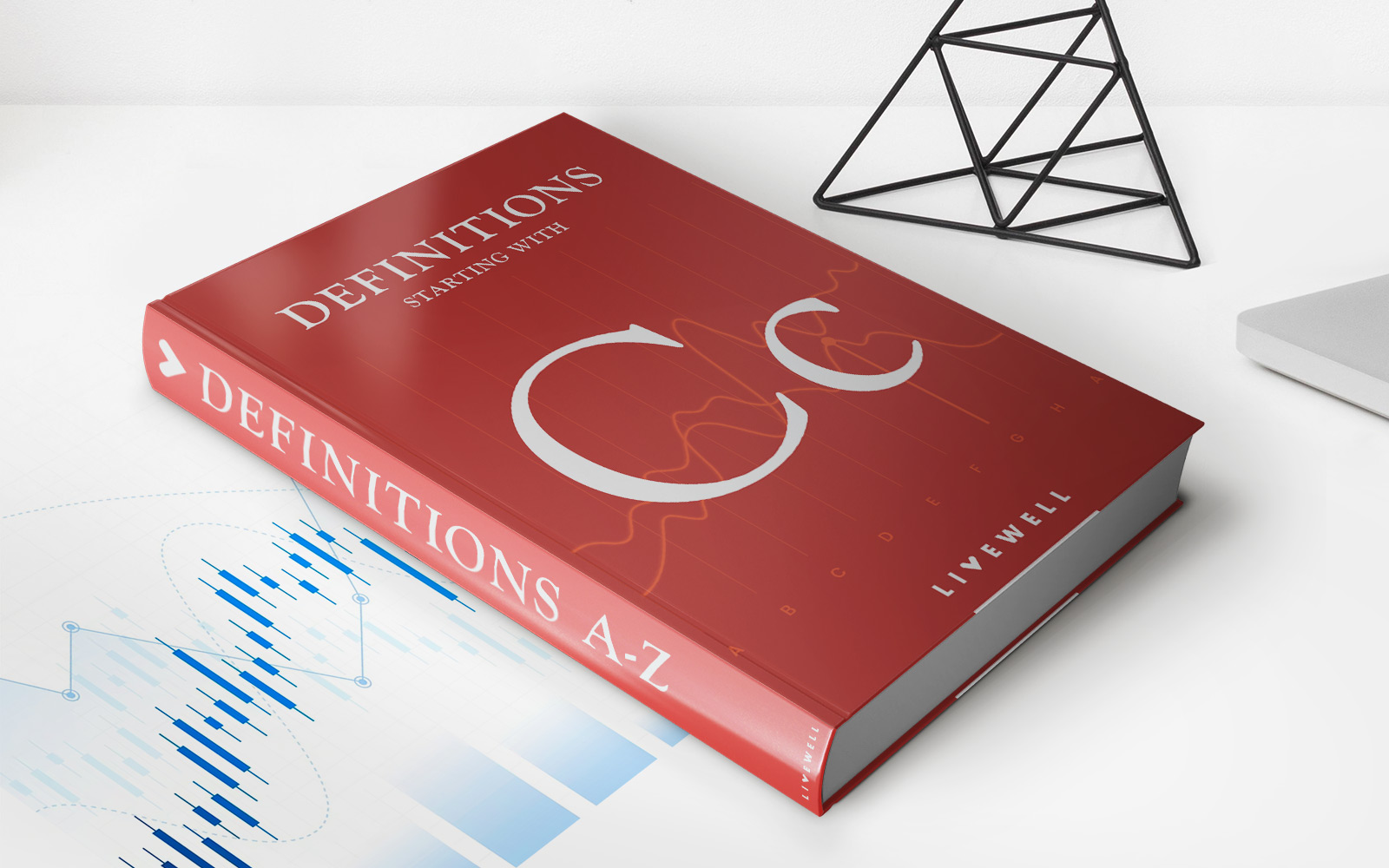Home>Finance>How Much Will My Credit Score Go Up After Chapter 7 Falls Off


Finance
How Much Will My Credit Score Go Up After Chapter 7 Falls Off
Published: October 23, 2023
Discover how your credit score can improve after Chapter 7 bankruptcy is removed from your credit report. Unlock financial opportunities with increased creditworthiness.
(Many of the links in this article redirect to a specific reviewed product. Your purchase of these products through affiliate links helps to generate commission for LiveWell, at no extra cost. Learn more)
Table of Contents
- Introduction
- Understanding Chapter 7 Bankruptcy
- The Impact of Chapter 7 Bankruptcy on Credit Score
- How Long Does Chapter 7 Bankruptcy Stay on Credit Report?
- What Happens When Chapter 7 Bankruptcy Falls Off?
- Factors Affecting Credit Score Increase After Chapter 7 Bankruptcy
- Estimating the Credit Score Increase after Chapter 7 Bankruptcy Falls off
- Steps to Improve Credit Score After Chapter 7 Bankruptcy
- Conclusion
Introduction
Bankruptcy can be a difficult and overwhelming process, but for many individuals facing overwhelming debt, Chapter 7 bankruptcy offers a fresh start. However, one of the major concerns for individuals going through Chapter 7 bankruptcy is how it will affect their credit score. Your credit score is a crucial factor that lenders use to evaluate your creditworthiness when you apply for loans, credit cards, or even rental applications.
In this article, we will discuss the impact of Chapter 7 bankruptcy on your credit score and how long it will stay on your credit report. Additionally, we will also explore the factors that influence the increase in your credit score once Chapter 7 bankruptcy falls off your credit report.
It’s important to note that each individual’s credit journey is unique, and there is no one-size-fits-all answer when it comes to predicting the exact increase in your credit score after Chapter 7 bankruptcy. However, understanding the factors that contribute to credit score improvement can help you make informed decisions and take strategic steps to rebuild your credit.
So, if you’re ready to learn more about the impact of Chapter 7 bankruptcy on your credit score and how to boost it once the bankruptcy falls off your report, let’s dive right in!
Understanding Chapter 7 Bankruptcy
Chapter 7 bankruptcy, also known as “liquidation bankruptcy,” is a legal process that allows individuals or businesses to eliminate most of their debts and start fresh. It involves selling off assets to repay creditors and obtaining a discharge from eligible debts.
Unlike Chapter 13 bankruptcy, which involves creating a repayment plan to pay off debts over a period of time, Chapter 7 bankruptcy aims to provide immediate relief for those who are unable to repay their debts.
To qualify for Chapter 7 bankruptcy, individuals must pass a means test, which compares their income to the state median income. If their income falls below the median, they are likely eligible for Chapter 7. However, if their income is higher, they may have to pursue other bankruptcy options.
Once a Chapter 7 bankruptcy case is filed, an automatic stay is put into effect, which halts collection activities from creditors. This gives debtors immediate relief from creditor harassment, wage garnishments, and ongoing legal actions.
During the bankruptcy process, a bankruptcy trustee is appointed to oversee the case. The trustee is responsible for collecting and liquidating non-exempt assets, distributing the funds to creditors, and ensuring that the debtor adheres to bankruptcy laws.
It’s important to understand that not all debts can be discharged through Chapter 7 bankruptcy. Some common debts that may not be dischargeable include child support, alimony, student loans (in most cases), recent taxes, and certain court judgments.
While Chapter 7 bankruptcy provides a fresh start by eliminating most debts, it also has consequences for your credit score. It’s crucial to carefully consider the long-term impact on your financial health before filing for Chapter 7 bankruptcy.
The Impact of Chapter 7 Bankruptcy on Credit Score
Chapter 7 bankruptcy can have a significant impact on your credit score. When you file for Chapter 7, it will be recorded on your credit report and remain there for a period of time, typically around 10 years. This public record indicates to lenders and creditors that you have gone through a bankruptcy process.
As a result, your credit score will likely experience a significant drop after filing for Chapter 7 bankruptcy. The exact decrease in your credit score will depend on several factors, including your previous credit history, the number of debts discharged, and the overall state of your credit before filing.
It’s not uncommon for individuals to see a decrease of 100 points or more in their credit score following a Chapter 7 bankruptcy. This drop can make it challenging to access new credit or secure favorable terms for loans in the immediate aftermath of bankruptcy.
However, it’s important to remember that although your credit score may take a hit, Chapter 7 bankruptcy provides an opportunity for a fresh start. It allows you to wipe the slate clean and rebuild your financial life. Understanding the timeframe for Chapter 7 bankruptcy to remain on your credit report is essential for planning your credit rebuilding strategy.
Note: This is an information-rich paragraph that emphasizes the impact of Chapter 7 bankruptcy on credit scores.
How Long Does Chapter 7 Bankruptcy Stay on Credit Report?
Chapter 7 bankruptcy can have a long-lasting impact on your credit report. It typically remains on your credit report for a period of 10 years from the date of filing. This means that the bankruptcy filing will be visible to lenders and creditors for a significant amount of time.
During the 10-year period, potential lenders and creditors will be able to see that you have filed for Chapter 7 bankruptcy when reviewing your credit report. This can have implications for your ability to obtain new credit, secure loans, or even be approved for a rental application.
While Chapter 7 bankruptcy remains on your credit report for 10 years, its impact on your credit score will diminish over time. As you demonstrate responsible financial behavior and rebuild your credit history, the negative effects of the bankruptcy filing will begin to fade.
It’s important to note that other negative items, such as late payments or collections, may also be present on your credit report alongside the Chapter 7 bankruptcy. These can further impact your credit score and make it more challenging to access new credit in the short term.
Although Chapter 7 bankruptcy does stay on your credit report for a significant period, it does not mean that you will be stuck with a low credit score for the entire duration. With time, effort, and responsible financial habits, you can work towards improving your credit score and accessing new credit opportunities.
Remember to regularly review your credit report to ensure that it accurately portrays your financial history and to identify any errors or outdated information related to your bankruptcy filing.
Note: This section provides important information about the duration of Chapter 7 bankruptcy on your credit report and highlights the potential challenges it may present when seeking new credit.
What Happens When Chapter 7 Bankruptcy Falls Off?
When Chapter 7 bankruptcy falls off your credit report after the 10-year period, it means that the bankruptcy filing will no longer be visible to lenders and creditors who review your credit history. This can have positive implications for your creditworthiness and financial opportunities.
Once Chapter 7 bankruptcy falls off your credit report, it is important to understand that it does not automatically guarantee a significant increase in your credit score. Your credit score is influenced by various factors, including your credit utilization, payment history, length of credit history, and the presence of any negative information aside from bankruptcy.
While the bankruptcy filing may no longer be visible, lenders and creditors may still take into account other negative information and factors when evaluating your creditworthiness.
However, the removal of Chapter 7 bankruptcy from your credit report can provide a fresh start and an opportunity to rebuild your credit history. It is essential to take advantage of this clean slate and work towards improving your credit score by implementing responsible financial habits.
As Chapter 7 bankruptcy falls off your credit report, you can take proactive steps to boost your creditworthiness. Consider the following actions:
- Ensure that you make all of your current payments on time and in full.
- Keep your credit utilization low by using only a small portion of your available credit.
- Apply for a secured credit card or a credit-builder loan to demonstrate responsible credit usage.
- Regularly monitor your credit report for accuracy and address any discrepancies promptly.
- Consider seeking guidance from a reputable credit counseling agency or financial advisor to develop a personalized credit rebuilding plan.
It’s important to note that rebuilding your credit after Chapter 7 bankruptcy takes time and patience. The key is to consistently practice responsible financial habits and demonstrate a positive credit history. Over time, your credit score will gradually improve, and you will have a better chance of qualifying for new credit opportunities with favorable terms.
Note: This section explains the implications of Chapter 7 bankruptcy falling off your credit report and provides actionable steps to rebuild your credit.
Factors Affecting Credit Score Increase After Chapter 7 Bankruptcy
After Chapter 7 bankruptcy falls off your credit report, you may wonder what factors will impact the increase in your credit score. While there is no magic formula, several key factors play a role in determining how quickly and significantly your credit score will improve:
- Timely Payments: Consistently making your payments on time is crucial. Payment history is one of the most significant factors influencing your credit score. By paying bills promptly and in full, you demonstrate responsible financial behavior to potential lenders and creditors.
- Credit Utilization: Keep your credit utilization low by using only a small portion of your available credit. Aim to keep your credit card balances below 30% of the credit limit. Maintaining a low credit utilization ratio shows lenders that you are not overly reliant on credit and can manage your finances responsibly.
- New Credit Accounts: Opening new credit accounts after bankruptcy can help establish a fresh credit history. Consider applying for a secured credit card or a credit-builder loan to demonstrate your ability to manage credit responsibly. These types of accounts can help rebuild your credit score over time.
- Length of Credit History: The age of your credit accounts contributes to your credit score. Although your Chapter 7 bankruptcy filing will remain on your credit report for 10 years, the older your other accounts become, the more positive impact they will have on your credit score.
- Diversification of Credit: Having a mix of credit types, such as credit cards, installment loans, and a mortgage, can positively affect your credit score. Lenders like to see that you can manage different types of credit responsibly.
- Public Record Removal: Once your Chapter 7 bankruptcy falls off your credit report, its absence can improve your creditworthiness. While other negative information may still be present, the removal of the bankruptcy can be viewed favorably by lenders and contribute to an increase in your credit score.
Keep in mind that it takes time to rebuild your credit after Chapter 7 bankruptcy, and individual circumstances may vary. Patience, consistency, and responsible financial habits are key to gradually improving your credit score.
By focusing on these factors and staying committed to rebuilding your credit, you can increase your chances of qualifying for new credit opportunities with better terms and higher credit limits in the future.
Note: This section highlights the important factors that influence the increase in your credit score after Chapter 7 bankruptcy and emphasizes the role of responsible financial habits.
Estimating the Credit Score Increase after Chapter 7 Bankruptcy Falls off
Estimating the exact credit score increase after Chapter 7 bankruptcy falls off your credit report can be challenging, as every individual’s credit journey is unique. Several factors come into play when determining the increase in your credit score, making it difficult to provide an exact prediction.
However, it is important to note that as time passes and your bankruptcy filing becomes older, its impact on your credit score diminishes. Lenders and creditors may place less weight on the bankruptcy as newer, positive credit history is established.
On average, it is possible to see a gradual increase in your credit score after Chapter 7 bankruptcy falls off your credit report. However, the rate at which your credit score improves depends on various factors, including:
- Post-Bankruptcy Financial Behavior: If you maintain responsible financial habits, such as making on-time payments, keeping credit utilization low, and managing your debts effectively, you may see a faster credit score increase.
- Extent of Rebuilding Efforts: Opening new credit accounts, diversifying your credit mix, and demonstrating positive credit behavior can expedite the credit score increase. Additionally, consistently maintaining a good credit history over time will contribute to a healthier score.
- Remaining Negative Information: While the removal of the bankruptcy itself can have a positive impact, other negative information, such as late payments or collections, may still be present on your credit report. These can offset the credit score increase to some extent.
- Overall Credit History: Your credit history and profile beyond the bankruptcy filing are essential in evaluating creditworthiness. Factors such as the length of your credit history, the presence of positive payment patterns, and current outstanding debts all contribute to your credit score.
Remember, patience is key when rebuilding credit after Chapter 7 bankruptcy. Gradually, as positive credit behaviors accumulate and negative information ages, your credit score will improve. However, it’s important to manage your expectations and set realistic goals.
To get a clearer understanding of your credit score progress, monitor your credit report regularly. This allows you to identify areas of improvement and address any errors or inaccuracies promptly. Additionally, working with a credit counselor or financial advisor can provide guidance and strategies to expedite your credit score increase.
Note: This section outlines the factors that influence the credit score increase after Chapter 7 bankruptcy falls off your credit report and emphasizes the importance of responsible financial habits and patience in rebuilding credit.
Steps to Improve Credit Score After Chapter 7 Bankruptcy
Rebuilding your credit after Chapter 7 bankruptcy requires time, effort, and a strategic approach. While it may seem daunting, there are several steps you can take to improve your credit score and regain your financial health. Here are some key steps to consider:
- Create a Budget: Start by evaluating your income and expenses to create a realistic budget. This will help you prioritize payments, avoid overspending, and ensure that you can meet your financial obligations.
- Make On-Time Payments: Pay all your bills, loan payments, and any remaining debts on time. Late payments can have a negative impact on your credit score, so prioritize timely payments to demonstrate responsible financial behavior.
- Monitor Your Credit Report: Regularly review your credit report from all three major credit bureaus (Equifax, Experian, and TransUnion) to ensure its accuracy. Dispute any errors or discrepancies that may be negatively impacting your credit score.
- Build a Positive Credit History: Consider applying for a secured credit card or a credit builder loan. These tools allow you to demonstrate responsible credit usage and establish a positive payment history. Make small, manageable purchases and pay them off in full and on time each month.
- Manage Credit Utilization: Keep your credit card balances low and aim to use no more than 30% of your available credit. High credit utilization can indicate a heavy reliance on credit and can negatively impact your credit score.
- Reestablish Good Credit Relationships: If you have existing credit accounts, such as a credit card or a mortgage, continue to make timely payments to rebuild trust between you and lenders. Over time, consistent positive behavior will reflect positively on your credit score.
- Be Patient: Rebuilding your credit takes time and cannot be achieved overnight. Be patient and persistent in your efforts to establish new credit habits and rebuild a positive credit history. As time goes by, the impacts of the bankruptcy will diminish, and your credit score will gradually improve.
- Seek Professional Guidance: Consider working with a credit counselor or financial advisor who can provide personalized guidance and strategies to help you rebuild your credit. They can offer expert advice tailored to your specific situation and assist you in making informed financial decisions.
Remember, improving your credit score after Chapter 7 bankruptcy requires a proactive and disciplined approach. By following these steps and consistently practicing responsible financial habits, you can gradually rebuild your creditworthiness and regain your financial footing.
Note: This section provides actionable steps for improving credit score after Chapter 7 bankruptcy and emphasizes the importance of budgeting, responsible credit usage, and seeking professional guidance.
Conclusion
Chapter 7 bankruptcy can have a significant impact on your credit score and financial well-being. However, it is important to remember that it is not the end of your financial journey. With careful planning, responsible financial habits, and patience, you can rebuild your credit score after Chapter 7 bankruptcy and regain your financial stability.
Throughout this article, we have discussed the various aspects of Chapter 7 bankruptcy and its impact on your credit score. We explored how long Chapter 7 bankruptcy stays on your credit report, what happens when it falls off, and the factors that affect the increase in your credit score. Additionally, we provided practical steps to improve your credit score after bankruptcy.
Rebuilding your credit after bankruptcy requires dedication and discipline. It involves staying organized with your finances, making consistent on-time payments, managing your credit utilization, and demonstrating positive credit behavior. It may take time, but over the course of months and years, you can see improvements in your credit score and regain access to new credit opportunities.
Remember to monitor your credit report regularly, address any errors or discrepancies, and seek professional guidance if needed. Financial professionals, such as credit counselors or financial advisors, can provide tailored advice and help you develop a personalized plan to rebuild your credit.
Ultimately, the most important thing is to stay committed to your financial goals and maintain responsible financial habits. By doing so, you can overcome the challenges of Chapter 7 bankruptcy and set yourself on a path towards a brighter financial future.
Note: This section concludes the article by summarizing the main points discussed and emphasizing the importance of commitment, responsible financial habits, and seeking professional guidance in rebuilding credit after Chapter 7 bankruptcy.














